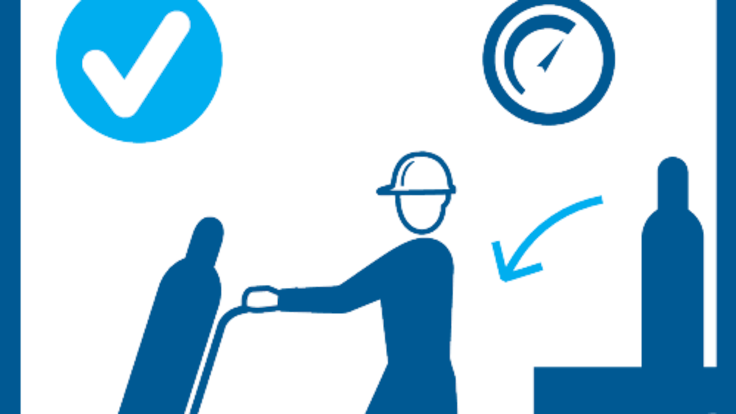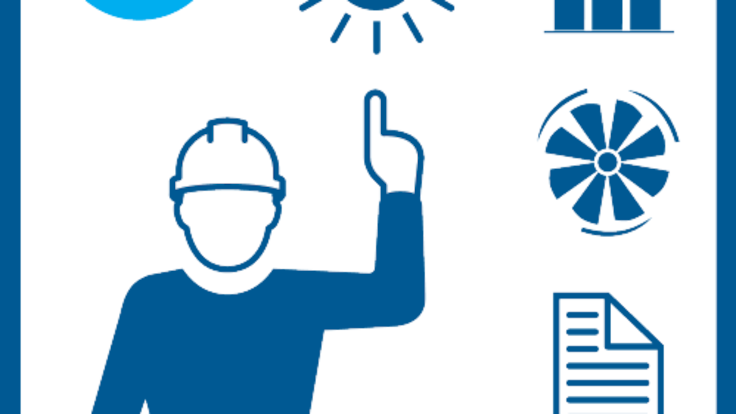Health & Safety: Handling Gas Cylinders & Cylinder Care
Improving Safety Performance by Embracing Best Practices

Positive Action
At Linde, we believe that virtually all gas-related workplace incidents can be avoided with the proper precautionary safety measures. Before even handling a gas cylinder, operatives should undergo suitable training, outlining the concrete measures and care routines that can contribute to our Zero Today goal.
We handle thousands of cylinders each day. This vast hands-on experience has enabled us to create a collection of best practices that cover the most common mistakes and oversights that can compromise the safe handling of industrial gases. Check out our "Handling Gas Cylinders & Cylinder Care" video for practical tips on how to store, segregate, secure and move gas cylinders. The following instructions summarize the key recommendations:
- Always ask yourself if it is safe to approach the cylinder
- Wear protective clothing and remember that cylinders can easily topple over
- Follow safe lifting / manual handling guidelines - using a trolley if possible
- Never lift a cylinder by the cylinder valve or valve handwheel
- Make sure cylinders are secured and valves are closed
- Segregate cylinders by gas properties and store vertically in a safe place
- Before moving or using a cylinder, use the cylinder label to identify the contents and the associated properties and hazards
- Always check for signs of damage
- Make sure you know what to do in an emergency

Proper Training
The aim of this video is to give a brief overview of the best practices in cylinder care and handling. It is not meant to replace proper training. We suggest you contact your supervisor if you have not had suitable training or have not been on a refresher course in some time. To complement these guidelines on proper cylinder care and handling, we have also created videos that promote awareness around:
- Transporting Gas Cylinders
- Handling Gas Cylinders & Cylinder Care
Do not hesitate to contact your local Linde representative or your gases supplier if you have any questions or would welcome advice on the latest legislative updates or local guidelines on cylinder handling in your region.